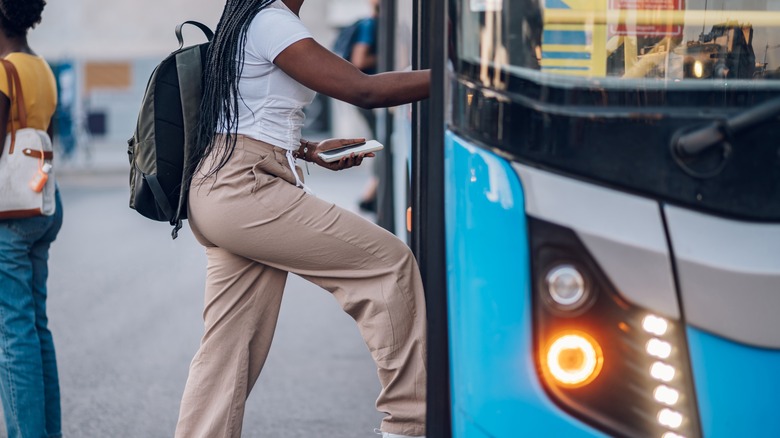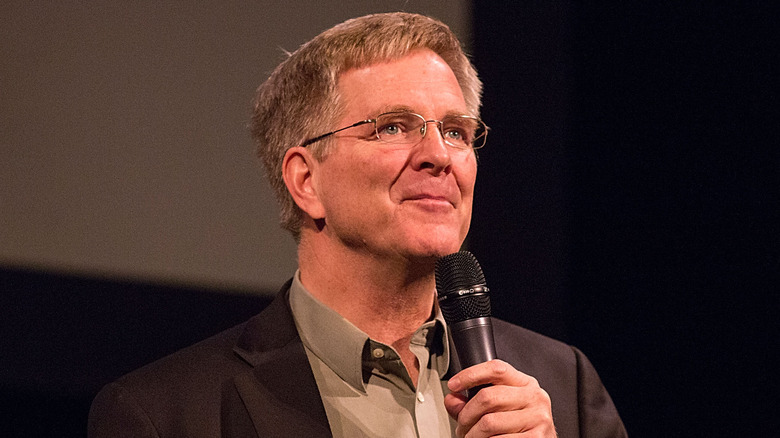Travel Guides Solo Travel
Rick Kern/Getty Images
Hilary I. Lebow
Solo travel can be an exhilarating, transformative experience, but it doesn’t come without a few risks. Celebrated travel expert, guidebook author, and TV host Rick Steves has a few suggestions to make it easier and guarantee a memorable experience. One of his first tips is to act self-assured and use common sense on the streets. Even if you have no idea where you’re going, walk as if you know the local area like the back of your hand. Should you get lost, duck into a shop to study your map or reference materials, rather than standing on the street looking like a helpless, confused tourist.
Always bring the essentials with you, like cash in the local currency, so you can be as self-reliant as possible. Nothing screams “tourist” more than someone who needs help with every little thing. If you do end up in a pinch, ask a friendly looking family or a police officer for help, but watch who you talk to in questionable neighborhoods. It’s never a bad idea to learn a few key phrases, either, from a phrasebook or through an app like Duolingo. If you’re using apps on your phone to help you navigate and translate the language, carry a portable battery charger, so you always have access to assistance when you need it.
Go with the flow, yet trust your gut

Zamrznuti tonovi/Shutterstock
When it comes to cultural exchange, there are going to be times when you simply have no clue what’s going on, says Steves. For example, on public transportation, a bus driver might appear to be going in the wrong direction. Unless you can speak the language like a local, you simply can’t know every single thing. Instead, you have to trust that it’s all part of the process and go with the flow — you’ll connect the dots later.
With that said, don’t let your guard down completely, he adds. Consider booking the earliest possible buses and trains so you have plenty of time to get to your accommodation before the sun goes down. Use ridesharing apps with tracking services instead of taxis, if possible. If you have to use a taxi, call ahead of time and make sure it’s a reputable company. If you’re waiting in a terminal to catch public transportation and there are shady characters hanging around, go to a nearby hotel lobby or cafe until it’s time to depart. Always keep an eye on your belongings, making sure your bags are in front of you and attached to your wrist or foot. If you have to be separated from your luggage, invest in an Apple AirTag to keep track of its location.
Take extra caution as a solo female traveler

RossHelen/Shutterstock
While solo travel comes with risks for anyone, Steves says that women should take a few extra precautions. For starters, invest in a good pair of dark sunglasses so men can’t tell if you’re looking at them, which could be considered an invitation in some places. Take a look around and notice what the local women are wearing. Try to match them in appearance, so you’re more likely to blend in and avoid unwanted attention.
Like you would at home, be selective about the type of men you talk to. Wear a fake engagement ring and drop plenty of mentions about your partner. If someone makes you uncomfortable, be direct and ask them to leave. Some things are universal, like a stern “no” with a serious look on your face. If someone keeps bothering you, leave the situation and seek refuge inside a store, restaurant, or hotel lobby. Most importantly, walk with your head held high, so the world will know not to mess with you. When it comes to smooth solo travel, confidence is everything.

